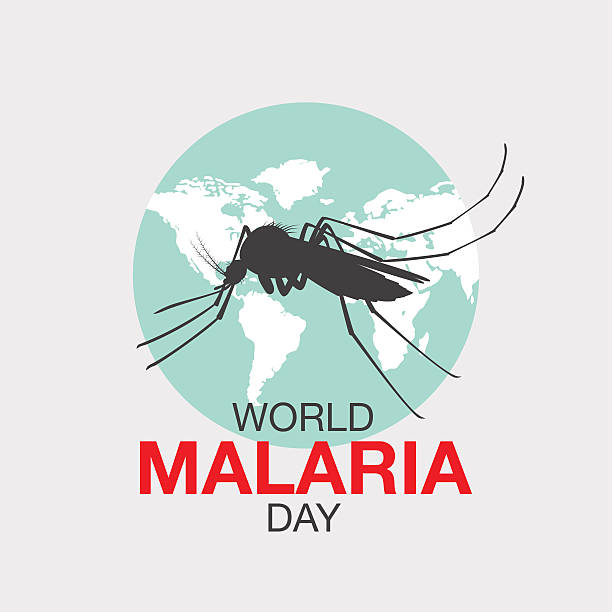
This 2021 malaria day clarion call ‘Zero malaria starts with me’ could not have been more appropriate in emphasising the need for ownership of the fight against malaria all and ensuring that malaria remains in the political agenda and resources are directed towards elimination. Indeed, malaria remains one of the greatest global health problems, with 409,000 deaths and >229 million clinical cases in 2019, as per WHO malaria report of 2020. After many years of reducing incidence and mortality, recent advances against malaria in Africa have stalled. Sub-Saharan countries, including Kenya, are implementing strategies aiming to control and eventually eliminate malaria. However, challenges include: a) the threat of malaria parasites becoming resistant to available drugs, such as artemisinin derivatives for treatment and antifolates for prevention; b) resistance of mosquito vectors to widely used insecticides; c) malaria parasites evading diagnosis using rapid tests; d) malaria commodity stock-outs that prevent optimal management of routine disease; and e) limited capability for surveillance to allow governments to characterize and optimally address malaria responses. Even within countries, there is great epidemiological variation in malaria incidence and prevalence, calling for tailor-made solutions rather than one-size-fits-all strategies. Surveillance is crucial. The World Health Organization, in its technical strategy, regards surveillance as an intervention that is critical to monitoring systems and improving on current, suboptimal strategies.
The role of 4th Industrial revolution in malaria elimination
The fourth industrial revolution has been described as a new era that builds on and extends the impact of digitization in new and unanticipated ways and includes technologies such as genome editing, new forms of machine intelligence, and approaches that rely on cryptographic methods such as the block chain. These powerful tools, hitherto too costly for the developing world, are increasingly reducing in cost due to the lowering cost of computing and the spread of the internet. Despite, existing challenges to ensuring equity in access to the benefits of the fourth Industrial revolution, its application in the fight against malaria can be low-hanging fruit for countries. The use of data science approaches in malaria surveillance for decision making easily comes to mind. This comprehensive surveillance system will collect, collate, and disseminate data on vital malaria indicators and enable optimal malaria control strategies. Such a system will include data repositories, coupled with data mining and modeling approaches, that enable the timely use of epidemiological and molecular data to inform sub-national and national decision-making. As has been evidenced by the genetic sequencing of COVID-19 in South Africa, the UK, and Brazil, which in a fairly timely manner unveiled new strains of the virus circulating in those countries, understanding the strains of malaria parasites in communities will enable better and more cost-effective public health interventions, including the choice of treatments. Malaria parasites have demonstrated a great ability to tweak their genes to be resistant to drugs. Mosquitos that transmit malaria have also developed resistance to commonly used insecticides and even changed their feeding behaviors so that they bite more when people are outdoors compared to indoors, years ago. Coupled with ability for computers to crack ‘big data’ including climate, human activities, movement, mosquito, and parasite genetics, machine learning can simulate trends and communicate complex data to users in easy-to-understand and easy-to-use formats and visualizations.
Kenya End Malaria Council
However, critical capacities will need to be developed in countries to realize these benefits. As the Covid 19 pandemic has clearly shown us, African countries can no longer rely on the benevolence of donors and the developed world to overcome existential threats. Everyone is pulling to their side. The two-month-old Kenya End Malaria Council launched by Hon. Mutahi Kagwe is a great starting point in ensuring sustainable homegrown solutions to local problems. This council, tasked to mobilizing local resources to drive the agenda of malaria control and elimination in Kenya, has a huge yet game changing task considering the traditional dependence on donors in malaria control. Interestingly, the country led End Malaria Councils is a flagship agenda of President Uhuru Kenyatta after he took over the leadership of the African Leaders Malaria Alliance (ALMA) and the Kenyan team must lead from the front. Funding and mainstreaming the use of new data science approaches that leverage the fourth industrial revolution for malaria intervention decision making is a feasible goal for the team. By building on existing capacity, innovating on the job, and working with scientists and institutions working on malaria research in the country and across our borders, the burden of malaria can be eased on our communities.

